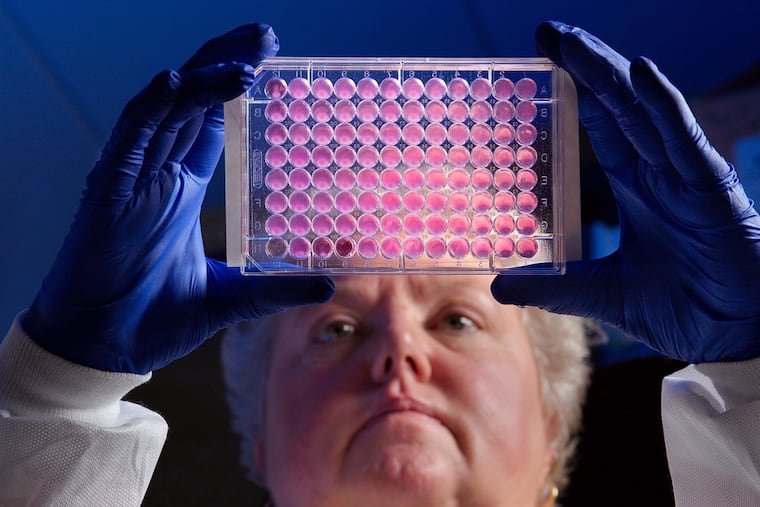The marketplace for new antibiotics is fundamentally broken | Opinion
Policymakers must consider payment and incentives.

One of the mysteries of COVID-19 is why it kills some patients while sparing others with similar health profiles.
The answer to this will not prove singular, of course. But research published in the prestigious medical journal The Lancet found that 50% of hospitalized patients who died of COVID-19 also had secondary bacterial infections. Some patients contracted these fatal infections from the very intensive care unit (ICU) ventilators that were intended to save them.
By contrast, just 1% of hospitalized COVID-19 survivors suffered from secondary infections.
Too often, the secondary bacterial infections that exploit those who are already ill are resistant to our existing arsenal of antibiotics. These “superbugs” — the result of antimicrobial resistance, or AMR — are a mounting threat to everyone. As a United Nations panel reported last year, “drug-resistant diseases already cause at least 700,000 deaths globally a year.” Unless we develop new and more potent antibiotics, that figure could increase to 10 million a year worldwide by 2050.
Scientists are well aware of this future dystopia — and have been ringing alarm bells for decades.
When antibiotics first became widely available in the 1940s, they revolutionized medicine by offering a way to cure deadly infections. But in the seven decades since — thanks in large part to overuse and misuse — some bacteria have evolved into new, drug-resistant strains. In short, what doesn't kill bacteria makes them stronger.
» READ MORE: Pennsylvania suspends requirements for childhood immunizations, and that has pediatricians worried
Fortunately, plenty of brilliant scientists are working on new antibiotics to attack and kill superbugs. But the marketplace for new antibiotics is fundamentally broken. Any advanced, new antibiotics are reserved for emergency, last-resort cases.
This makes perfect sense from a medical perspective. If they're used too widely, superbugs would acquire resistance to the new antimicrobials, as well. But it's a disaster for drug developers, who must spend hundreds of millions of dollars to invent and test any new antibiotic with no clear path to a return.
Malvern-based Venatorx Pharmaceuticals is among the companies working to develop new compounds, which we advanced with funding from the National Institutes of Health’s National Institute of Allergy and Infectious Diseases, the U.S. Department of Health and Human Services’ Biomedical Advanced Research and Development Authority, and the U.S. Department of Defense’s Defense Threat Reduction Agency, as well as private equity investors. But in order for this therapeutic area to succeed and save lives, the support cannot stop there.
In the last year alone, at least one-third of small firms with similar early-stage funding either went bankrupt or were forced to sell their antibiotics at a near-zero dollar value.
» READ MORE: When there’s a coronavirus vaccine, doses will be scarce. Who gets it first?
Most recently, the small biotech firm Melinta Therapeutics – which has four antibiotics on the market – filed for bankruptcy. Another promising antibiotics company – Achaogen – also went bankrupt despite having successfully received FDA approval for a novel antibiotic against superbugs.
Fixing this broken incentive structure for new antibiotics is best achieved in two ways.
First, policymakers must address how the newest and most clinically appropriate antibiotics are paid for when used in a hospital. Today's reimbursement rates effectively penalize physicians and hospitals for prescribing newer, more advanced antibiotics.
Second, government and other stakeholders should consider creative incentives — like "market entry rewards" — to risk-taking scientists and investors that successfully deliver novel antibiotics to patients.
» READ MORE: Senator Casey’s bill to fight ‘superbugs’ can help save lives | Opinion
Along these lines, more than 20 global biopharmaceutical companies just announced a $1 billion “AMR Action Fund,” that will directly invest in early-stage research efforts. The new fund will provide a vital lifeline to smaller biotech companies by offering the financial resources needed to take potential medicines from the innovation stage over the finish line.
That will prove a critical bridge to rectifying the fundamentally broken antibiotic market.
It’s time to get serious about developing new medicines to fight superbugs and uniting behind long-term fixes to the commercial market failure. Otherwise, the coming scourge of superbugs will prove just as — if not more destructive — than the COVID-19 pandemic.
Christopher Burns is president and CEO of Venatorx Pharmaceuticals, Inc.